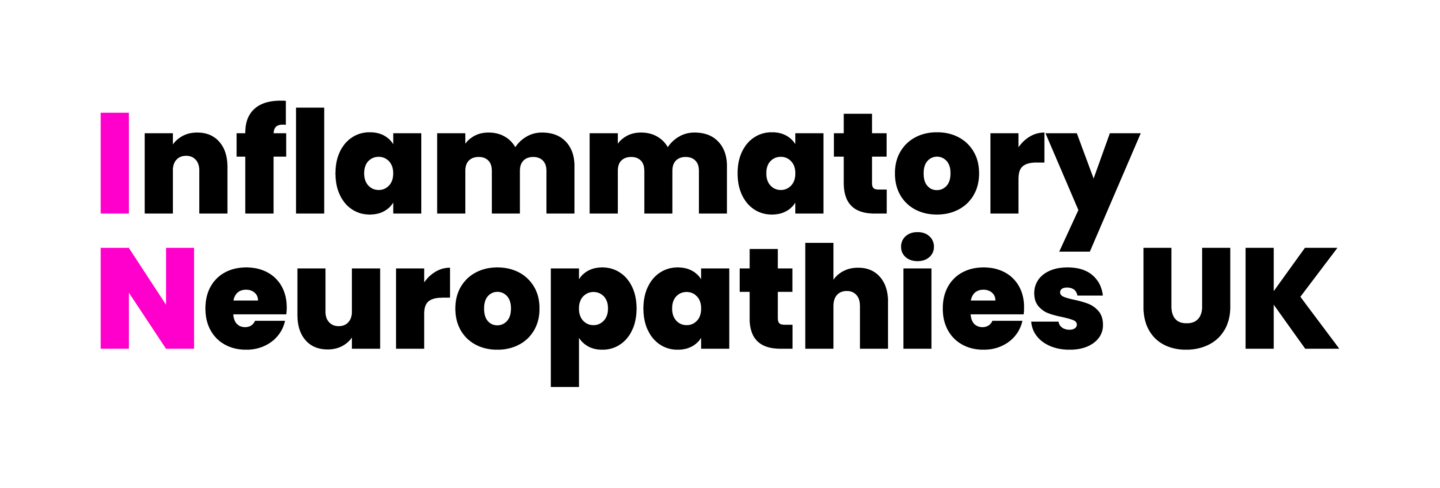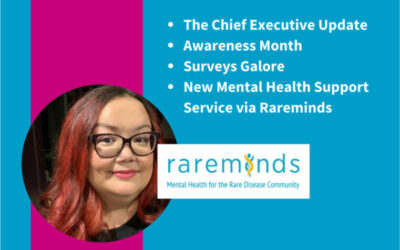The way in which Immunoglobulin (or Ig for short) is purchased and given out in England is changing, and we wanted to make sure that you were aware of what is going on.
This doesn’t impact you if you live in Scotland, Wales, Northern Ireland, or the Republic of Ireland.
What is Ig, IVIG, SCIg?
Immunoglobin (Ig) is essential for the treatment and management of Inflammatory Neuropathies. Ig comes in different forms, Intravenous Immunoglobulin (IVIg) is the most common and is infused into the blood through a vein, while Subcutaneous Immunoglobulin (SCIg) is injected under the skin. If you are unlucky enough to fall ill with Guillain-Barre Syndrome (GBS) then you will most likely be treated with an Ig product in hospital, and for many people with longer term chronic Inflammatory Neuropathies like CIDP and MMN, then Ig is one of the tools available to treat and support long term management of these conditions. In fact, in 2022/3, around 1585 people with CIDP, 906 with GBS, and 655 with MMN received IVIg, so it plays a major role in treatment.
Ig is made using a blood product called plasma. Plasma is part of our blood and can be donated and collected separately at specialist centres, or taken from every blood donation (55% of every blood donation is plasma). Until recently we couldn’t use plasma from the UK because of CJD (or Mad Cow’s Disease), so it was disposed of. This has recently changed and for the first time we will be able to use Ig in the UK made of plasma from UK donors.
What does this change for Ig from UK plasma donors mean for NHS England?
In order to ensure that we can use the plasma, and to make sure we have enough Ig that we need, NHS England recently carried out an exercise to put new contracts in place with manufacturers and providers of Ig products. From April 2025 there will be a new contract in place which means that we secure a better supply of Ig, as well as being able to use UK plasma in manufacturing some Ig. The new contract means that there is a list of providers who will provide a certain amount of Ig. In the main, this new contract should be seen as positive, it means we have better supply at a better cost, meaning we shouldn’t run low on Ig products as we have previously. However (and it is a big however), this does mean that there could be some changes to supply.
The change in contract means that some people may need to change what Ig they receive. The plan from NHS England is that those people who need to change will be given an alternative (but similar) Ig preparation. If the alternative is not something that works for you, then you can still use a different treatment from the others available under the contract. If you have a clinical need that means that none of the available treatments work for you, then there are other options available.
As a GBS, CIDP, or MMN patient, what does this change in Ig mean for me and my care?
What does this mean for you? If you are a GBS patient, then probably nothing. The treatment you receive in an emergency will be the treatment you receive. However, if you are a CIDP, MMN patient, or someone receiving longer term Ig treatment or management, then you may have a change to the treatment you receive. If your regular Ig treatment is on the list of available treatments in the contract then there will be no change. If it isn’t, then your clinicians will need to talk to you about a change to a similar treatment. Hopefully, this would be a simple change with no impact, but for some, the treatment may be less effective or have different impacts. If this is the case, or you have tried a treatment before that has had less or negative impacts, then you should talk to your clinician about alternatives.
NHS England are estimating that around 4,700 patients (across a number of conditions) receiving 10% IVIg will need to swap to a different treatment, and 1,800 receiving SCIg will also need to swap. These are big numbers of people impacted, but it is only around 50% of everyone who uses an Ig product. However, chances are this may impact on you.
If you’re concerned, reach out
We understand that any change can be difficult to manage, especially when it is so linked to your wellbeing as your Ig treatment. We also know that this is a pretty complex change, and it isn’t easy to follow what is happening and how it may impact you. If you are concerned about any of this then please speak to your clinician about it, and look at the options available to you. Alternatively, GAIN is here to support you with these changes and whilst we aren’t medically trained and can’t advise on medical issues, we can talk you through the process, and listen to any concerns. We also have links into NHS England so can ask questions and raise concerns. Remember we are here if needed, you can reach us on 01529 469910 or office@gaincharity.org.uk.




